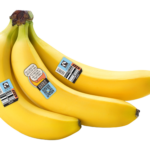Trump's tariff game concerns fruit trade industry

After weeks of threats, U.S. President Donald Trump has paused tariffs on Mexico and Canada, two of the country's main trade partners, for at least one month.
The 25% tariffs on all imported goods were set to be effective on February 4 but were postponed after Trump spoke with Mexican President Claudia Sheinbaum and Canada's Prime Minister Justin Trudeau.
On social media, Trump said the talks had succeeded, as he secured significant investments in border security from both neighboring nations.
Sheinbaum agreed to supply 10,000 Mexican Soldiers on the northern border with the U.S. At the same time, Trudeau said Canada would be implementing its previously announced $1.3 billion border plan, as well as committing to appointing a “fentanyl czar” and listing cartels as terrorists.
Trump said this will "finally end the deadly scourge of drugs like fentanyl that have been pouring into our Country."
China tariffs applied
China is the other country involved in this potential trade war. Early Tuesday, after Trump failed to reach an agreement with Chinese authorities, 10% tariffs on Chinese imports were implemented.
China has imposed retaliatory tariffs on various U.S. products, between 10% and 15%.
China’s Ministry of Finance announced a 15% tax on certain types of coal and liquefied natural gas and a 10% tariff on crude oil, agricultural machinery, large-displacement cars, and pickup trucks. The measures take effect on February 10.
Experts are already discussing the potential damage these import taxes could have on the economy and, most importantly, consumer prices.
CNN explains that the risks include elevating already-high consumer prices at the grocery store, rocking the shaky stock market, or killing jobs in a full-blown trade war.
The three countries account for over one-third of the products entering the United States and support tens of millions of U.S. jobs.
Continued concern
With the possibility of tariffs on Mexico and Canada still looming in a month, exporters from both countries are concerned regarding the effect this could have on their business and, ultimately, American consumers.
Much of the fruit consumed in the U.S. is imported, mainly from Mexico. A 25% tariff would make business unsustainable for many grower-exporters, who will likely pass on that cost to consumers.
This goes against Trump's purpose of reducing inflation and lowering costs for Americans, especially in supermarkets.
Based on this, Juan González Pita, COO of Salix Fruit, told Freshfruitportal.com that he thinks tariffs will not happen.
"We do a lot of business from Mexico to the United States," González said. "While we are alarmed when we hear of these Trump measures, on the other hand, we believe that they will come to nothing, so we are not so concerned."
He believes the U.S. relies too heavily on Mexican fresh produce, and tariffs would directly impact the price of such products.
"Trump also wants to control inflation, so we know it will not be easy to implement," he added.
Additionally, he mentioned American fruit that is also exported to these markets: "Mostly West Coast fruit, both from California and Oregon and Washington."
"I don't think the threat will ever materialize, at least in the fresh fruit business," said a confident González.
Regardless, it is not certain that the tariffs will not be applied after the 30-day pause. Increased costs could alter the supply chain and consumer behavior in the U.S.
Trump attacks on new fronts
South Africa has also fallen victim to Trump's international policies. The U.S. President said he would stop aid to the African country, claiming the government is confiscating land and treating "certain classes of people very badly."
Responding to the allegations, South African President Cyril Ramaphosa said on X, "South Africa is a constitutional democracy deeply rooted in the rule of law, justice, and equality. The South African government has not confiscated any land."
He has also expressed interest in speaking directly with Trump to clear the situation.
Even though the U.S. aid consists mainly of supporting the country's HIV/AIDS program, experts claim the agriculture sector is especially vulnerable as South Africa currently enjoys duty-free access to the U.S. market under a Clinton-era trade initiative.
After Trump's announcement, South Africa’s rand, stocks, and government bonds slumped on Monday.














































